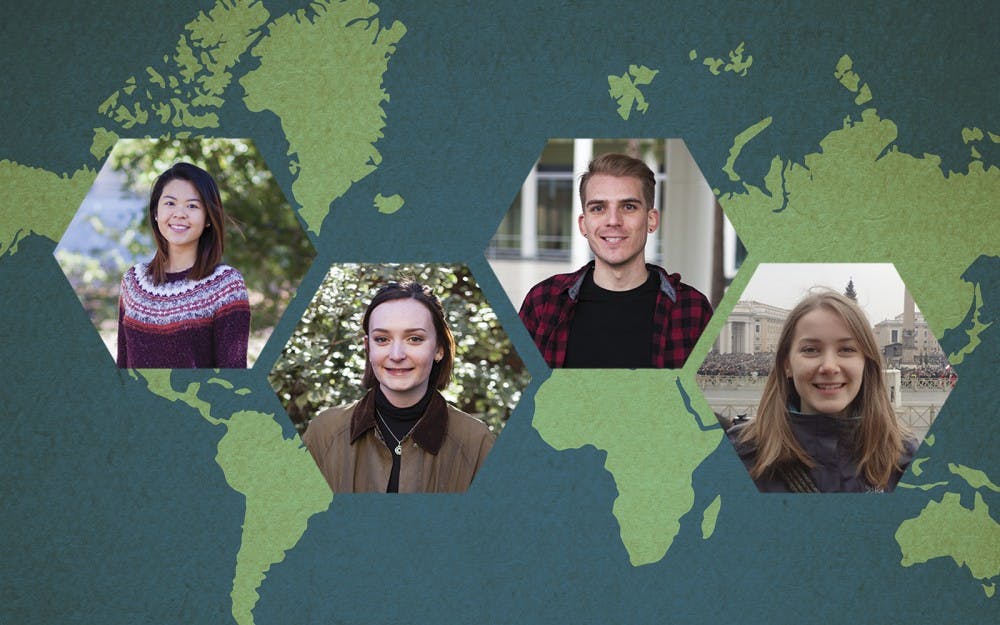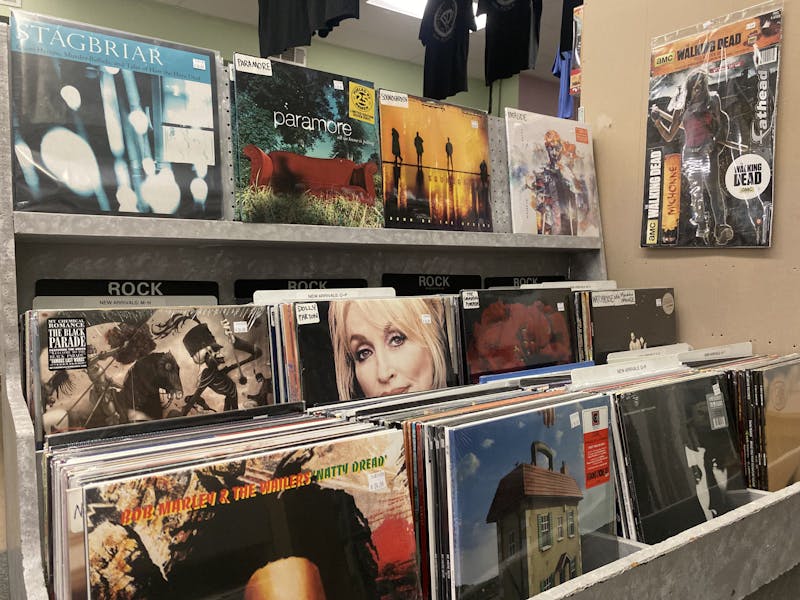The typical USC student is no stranger to the study abroad programs offered here. We’re bombarded by emails and besieged by spokespeople, all in an effort to coerce us into seeing the world.
If study abroad is all it’s cracked up to be, what are we and our fellow students to gain other than the typical memento?
Exchange students make for prime interview material. Trading places gives more insight into the lives of students around the world, because we can see both viewpoints It’s undeniable that study abroad puts students in contact with situations and experiences that would never cross their paths in their usual environments — that’s its epithet after all.
The desire to go abroad may be great, but, as with any trip, things will go awry. Just ask Lois Carlisle, third-year art history student, who ventured from USC to study at the University of Warwick in England.
“To be received by the university was great. Warwick is like 34 percent international students, and they build themselves on being a global university,” Carlisle says. “The difference in being accepted by the university and being accepted by the department of history here, however, was just a huge disparity.”
Carlisle experienced a few difficulties with the administration at Warwick.
“The department acted like they had never hosted someone from overseas before,” Carlisle says.
She believes a lackluster transition to digital rosters and submission systems are to blame. Like USC, the University of Warwick only recently put its faith into online systems.
“It was and has continued to be an ongoing struggle,” Carlisle says. A struggle that has resulted in “crazy emails that say, ‘We see you haven’t been to class, we’re thinking about revoking your visa.’”
The key to spending a semester overseas is to remain adaptable. A new country, new residence and new people make for an endless mix of unpredictable factors.
“Everything else is perfect, truly,” Carlisle says. “I can’t emphasize enough that there is nothing about this experience that I would not do again.”
For conciseness and fairness, each student interviewed was part of an exchange program.In Lois’ case, as she went abroad to Warwick, an English counterpart arrived at USC. Fiona Leedham, a third-year history major, is experiencing Columbia at the same time as Carlisle.
Concentrating in Southern studies, Leedham felt the draw to study abroad as a desire to expand her horizons.
“I just wanted to do something new, something different,” Leedham says.
Not only did Leedham find herself wanting for a change of scenery and pace, but South Carolina was prime location for the type of history study she is currently pursuing.
“I have an interest in race and race relations,so out of my options at home, South Carolina was the best one for me just in terms of the area,” Leedham says. “They had an African American studies program, and that really brought me in.”
Leedham has made many journeys to plantations around South Carolina and the greater South, such as Boone Hall in Mount Pleasant and Evergreen Plantation in Louisiana.
When she remembered her reception here in the South, a smile spread across Leedham’s face.
“They're so much friendlier,” Leedham says. “Southern hospitality is definitely a thing here.”
In terms of administrative aptitude, when comparing USC to Warwick, Carlisle isn’t alone.
“Back home, I don’t want to hate on Warwick, but the administration is just so bad. I’ve complained many times,” Leedham says. She attributes the difference to USC’s more “relaxed” approach.
Outside of the classroom, that relaxed attitude poses a few problems for Leedham. Being exposed to alcohol and the socialization that comes at a much younger age in England puts her in a curious place among other students. At home, she’s far past the so-called binge drinking stage that runs rampant on American campuses. She explains her position eloquently, without a hint of judgment, but rather like a 21-year-old at a high school party: present but passive.
The novelty of her accent proves difficult as well.
“They'll hear my accent and go ‘Oh, where are you from?’ It just never carries on past that conversation,” Leedham says.
She’s not the only foreign student perplexed by the conversational habits of American students. Charmaine To is a third-year international business student here from Hong Kong as part of the International Business and Chinese Enterprise program in Columbia.
“I feel like Americans have a lot of inside jokes, or sarcasm,” To says. “I think rather than a language barrier, it’s the way that people talk.”
To isn’t thwarted by the nuances of the Southern college vernacular though. Like Leedham, she’s experienced the palpability of Southern hospitality.
“I feel like, in South Carolina, I’m more encouraged to meet and talk to people because everyone is so much more friendly,” To says.
Hong Kong is a more reserved city in terms of personal space and social interaction, To says. You wouldn’t make conversation while waiting in line for a bagel. Third-year international business finance student Ryder Hogan, a correlative to USC and To who studied in Hong Kong for 15 months, knows this all too well.
“I was lucky enough to be there for longer than one semester,” Hogan says. “I think when you’re there for a short period, there is this filter where everything just seems amazing, and there is kind of a novelty to it. Being there for as long I was, I experienced the highs and lows, and I think that was a valuable, more authentic experience.”
Hogan found himself in a common situation faced by many travelers. He arrived in Hong Kong in a state of confusion. IBCE was a new program at the time, and with that comes teething issues.
“We didn’t have a lot of warning before we had to buy flights and when we went over we didn’t have much initial guidance,” Hogan says. “I flew in and had no idea where to go. I knew I had to go to the university but I didn’t know which building or where it was. They didn’t have an orientation set up for us so we just had to kind of figure it out.”
Hogan spoke to the more reserved nature of Hong Kong, but also to the inclusion of The Chinese University of Hong Kong. Hogan joined the rowing team while there and was surprised by the diligence the staff had toward accommodating English speaking students. The college he resided in also mandated that at least three meals a week be eaten with all the students living there in an effort to foster closer relationships and break down barriers.
Hogan summed up the study abroad experience as a combination of highs and lows. Social and academic acclimation is a taxing process, but finding your way in an environment, especially one overseas, rewards like no other.
"It will be the best experience," Carlisle says. "And when things go wrong, and they will go wrong, you will be all the better for it."



